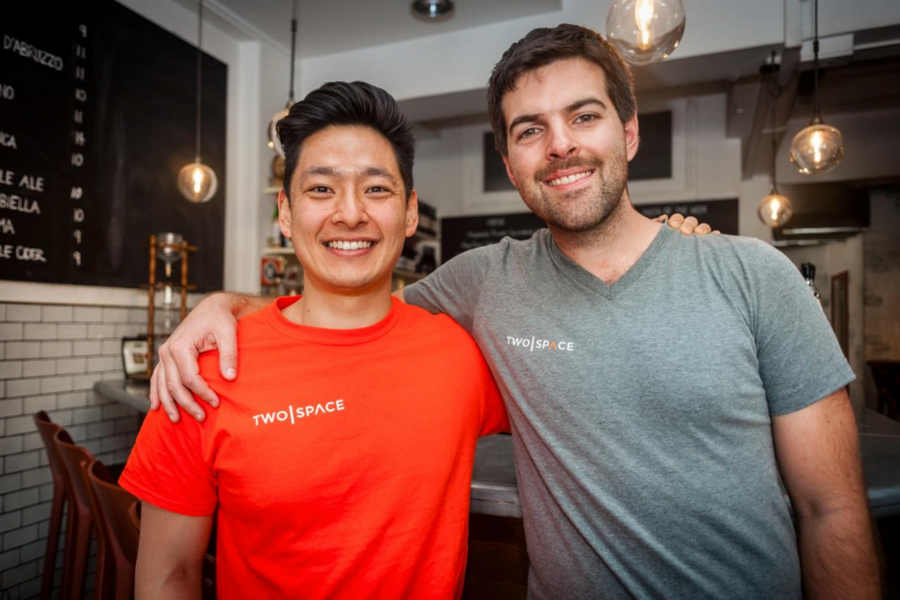For aspiring novelists or early stage startup founders, a table next to a powerpoint at a coffee shop has long been the perfect place to do business.
Wanting to open this phenomenon up to businesses outside Starbucks is Sydney venture TwoSpace, which wants to connect those in need of a workspace with restaurants that are usually closed during the day and formalise the whole process.
For the users, founders Tashi Dorjee and Rob Walker believe restaurants provide a cool, relaxed vibe while also being cheaper than the typical coworking space, while local restaurants get to bring in extra cash they otherwise would have missed out on during the day.
“As entrepreneurs we have always wanted a space to work from like a café or restaurant. The relaxed social setting is perfect for meetings and brainstorming; even when meeting with other offices we always opt for the coffee downstairs and not the corporate meeting room,” Dorjee said.
“While Rob and I did some work and travelled around Asia, one of our favourite restaurants was called Two Face, a coffee shop by day and pizzeria by night. To us this was a great concept making full use of the same space, so we decided to apply it to the workspace that we needed while also helping the local restaurants and pubs.”
The development of the TwoSpace idea has been helped along by the Optus Yes Lab after Dorjee sat next to a team member on the judging panel of a AngelHack hackathon. Showing it pays to keep in touch, Dorjee said he later ran the idea by the Optus Yes Lab, and found they were keen to get involved. As well as promotional support, Optus Yes Lab will be providing the restaurants with wifi.
TwoSpace will work by having users sign up for a monthly subscription that will, once the network of locations is built up, give them access to every TwoSpace location. For restaurants, TwoSpace will set up wifi and power outlets to make sure they are equipped to accommodate all the laptops.
“We are building a community to spark innovation, a lot of ideas just need the right push or people to get involved. In the evening when it turns back into a restaurant they then can socialise over happy hour or grab dinner, the right setting that sometimes gets a conversation going,” Dorjee said.
The cofounders scouted restaurants around the Surry Hills, Kings Cross, and Darlinghurst areas in Sydney, with Casoni in Darlinghurst the first to officially sign on.
“They are excited to get in foot traffic to their venue since right now the space is not being used and just sitting there,” Dorjee said.
“Our community will fill up their restaurants during the day, providing them with a room full of taste testers they can experiment on. After a day’s work, our customers become the restaurant’s customers, having traffic as soon as they open for business as usual.”
The initiative will launch at Casoni on October 10, free for a month to see how it works before developing a pricing scheme.
Dorjee said the startup has received significant interest from potential users; it will be interesting to see what kind of people do end up using the service. Given founders often work into the early hours, the question of how to keep working once a restaurant does open for normal business and needs every table for diners could become a problem. The stereotypical Starbucks freelancer or aspiring novelist, on the other hand, could become a key customer.
Over the next few months Dorjee said TwoSpace will look to open in Melbourne and Singapore, with Hong Kong a stretch goal.
Image: Tashi Dorjee and Rob Walker. Source: Supplied.




















Trending
Daily startup news and insights, delivered to your inbox.